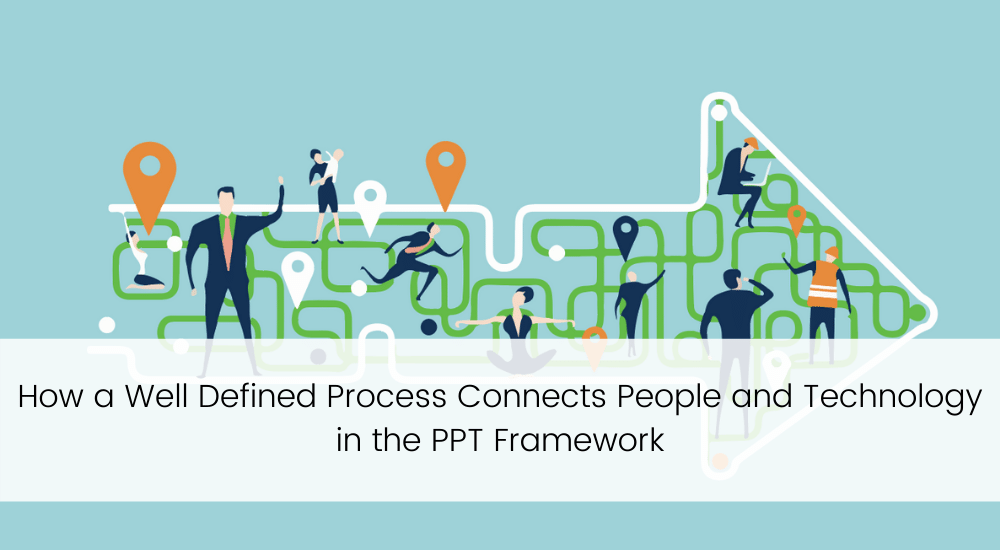
Technology seems to get all the credit for creating value within the business environment and streamlining work through automation. But how is an investment in tech valuable without the support of the people and processes that ensure it generates revenue? People and processes remain essential within the broader context of technological innovation, but their roles have changed.
The Right People, the Right Processes, and the Right Technology
Digital transformation (DX) is what McKinsey refers to as a "complex, large-scale change program." According to their research, 70% of these change programs fail. These transformations fail when new technology fails to support people or processes—in short, businesses fail when leaders choose the wrong tools for the job.
Successful technology implementations tend to modernize for agility and speed. They allow people to simplify processes; meaning, teams can accomplish more in less time and without additional effort.
Digital transformation doesn't reward sunk costs. If you throw your effort and money behind a transformation effort and it doesn't work for you, changing direction is hard. It's better to start small and fail fast—piloting a single technology in a single project. If it succeeds, expand and double down. If the efforts fail quickly and on a small scale, less time and credibility are lost. A quick pivot in a new direction is possible.
Creating Customer-Centric Improvements via Digital Transformation
Another DX pitfall is investing in technology that doesn't help the customer. For example, a survey of AI startups in the EU showed that almost 50% of their products were focused on just two areas—chatbots and fraud detection. Fraud detection isn't a technology that helps the customer—it helps the business raise its bottom line. Chatbots save companies money by eliminating customer support personnel, but customers find them frustrating and impersonal.
Good digital transformation technology is customer-centric. Keeping loyal customers and converting new ones brings more value and revenue to the business than lowering costs. Gartner recommends bringing customers to the digital platform center, where tech leaders can partner their people with IT to drive change.
In short, instead of asking how your digital transformation efforts can lower costs, ask how those efforts can expand data and digital capabilities to drive business outcomes and delight customers.
Avoid Hype to Create Impactful Change
There is no such thing as one-size-fits-all for digital transformation because so many new technologies turn out to have limited utility.
Instead of empowering companies to create new products and business models, AI often restricts companies to just two ways of reducing expenses. There are revolutionary or transformative AI products, but they are hard to find and by no means a must-have for success.
It remains true that road-tested technologies make better investments than this year's shiny new toy. Suppose you're starting your digital transformation from scratch. In that case, proven technologies such as the hybrid cloud will serve your needs more immediately than riskier investments such as AI.
Turn an Iterative Approach into Digital Transformation
We get it. Change is scary. But even more frightening is being left behind with aging tech and decreased capacity to compete in the market. The ability to respond to evolving customer demands is the key to success.
Discover how the PPT framework is still relevant to your business. While hybrid cloud technologies have revolutionized service delivery and customer accessibility, the core business framework of interrelated human and technological elements remains the same.
Why Choose TBConsulting as your Managed Service Provider?
TBConsulting has established a proven track record of success in the Managed Service Provider industry, specifically by building a reputation for delivering outcome-driven, customer-centric service to partnering with our clients. We are proud of our 95% client retention rate, reflecting our commitment to our clients' success.
When you partner with TBC, you benefit from an advisor who will engage your organization at a strategic level to ensure technology initiatives support your business outcomes. If you want to understand the initial steps of your digital transformation, or if you're wondering which technologies are helpful and which ones are hype, partner with TBC. We'll help you identify the gaps in your technologies, helping you empower your people and processes. Contact us today for more information!
.png)

